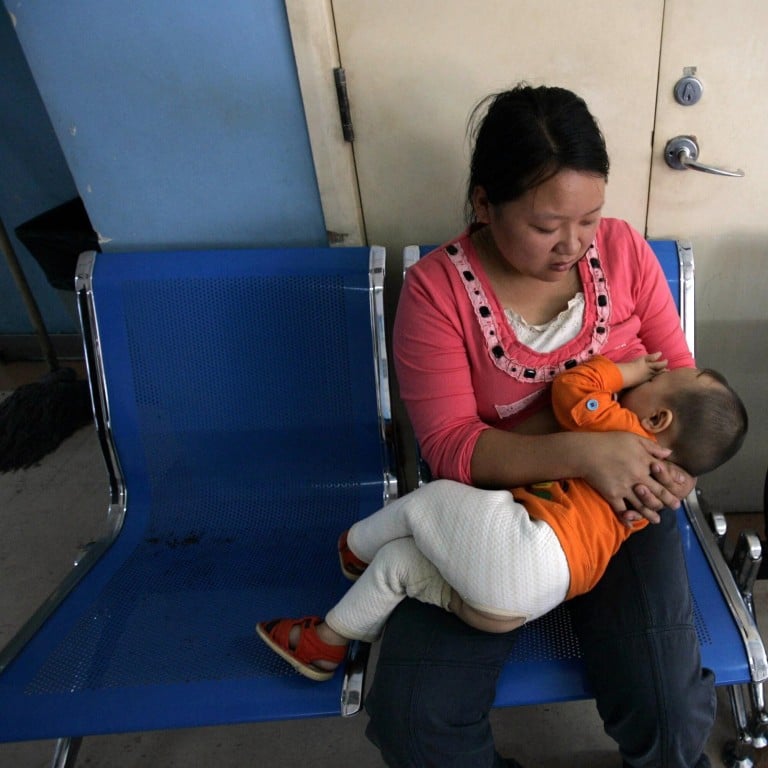
Mother’s milk could help fight coronavirus, study finds
- Chinese researchers found that exposure to human breast milk helps kill the virus that causes Covid-19
- Some health authorities have warned that breastfeeding could spread the virus, although the World Health Organization says mothers should continue to do so
Mother’s milk could prevent or treat Covid-19, according to a new study by Chinese scientists.
A research team in Beijing tested the effect of human breast milk on cells exposed to the Sars-CoV-2 virus. The milk was collected in 2017, well before the start of the pandemic, and the cell types tested varied from animal kidney cells to young human lung and gut cells.
The results were the same: most living virus strains were killed by the milk.
The breast milk was “blocking viral attachment, entry and even post-entry viral replication,” the team led by Professor Tong Yigang from the Beijing University of Chemical Technology wrote in two non-peer-reviewed papers posted on biorxiv.org on Friday.
Breastfeeding has previously been seen as increasing the risk of viral transmission.
Coronavirus: genetic mutation linked to schizophrenia may cause less severe Covid-19 symptoms
In Wuhan, where the virus was first detected, newborns were separated from mothers who tested positive and fed exclusively by formula, according to Chinese media reports from February.
The US Centres for Disease Control also warn that babies being breastfed by mothers suspected or confirmed to be carrying Covid-19 should be seen as “suspect” carriers too.
But the latest study supports the World Health Organization’s official stance that mothers should continue to breastfeed even if they have Covid-19.
The global health body tracked 46 Covid-19 breastfeeding their children in several countries through June.
Viral genes were detected in the milk of three mothers but there was no evidence of infection. Only one child tested positive and transmission through other means could not be ruled out.
Tong and colleagues mixed some healthy cells in human breast milk, then washed the milk off and exposed the cells to the virus.
They observed there was almost no viral binding or entry to these cells, and the treatment also halted viral replication in cells already infected.
They concluded that the infection could be inhibited by breast milk, which is already known to have suppressive effects on bacteria and viruses such as HIV.
Tong and colleagues suspected the coronavirus was sensitive to some well known antiviral proteins in milk, such as lactoferrin, but found none of the proteins worked as expected.
Instead, they said the most like ingredient for inhibiting the virus was whey, which contains several different proteins.
Cow and goat whey, was able to suppress the living viral strains by about 70 per cent, according to Tong‘s study. In comparison, the efficacy of human whey reached nearly 100 per cent.
Coronavirus: pets may be more susceptible to Covid-19 than first thought, study says
Human milk was able to eliminate the virus in a broader range of cell types, but the researchers said it was unclear what had caused the difference.
Tong and colleagues said they had not found any sign of harm caused by human milk, which “promoted cell proliferation” while killing the virus.
Some parents are know to use donated breast milk to feed their babies, which is often pasteurised to eliminate potential contamination.
However, the Chinese team found that heating the milk to 90 degrees for 10 minutes inactivates the whey protein, causing the protection rate against the coronavirus would drop to under 20 per cent.
“It is worth identifying the key factors for further antiviral drug development,” they concluded.

